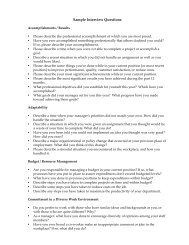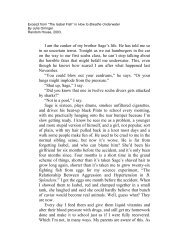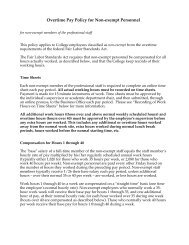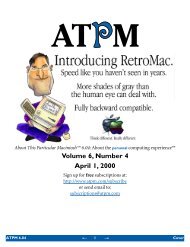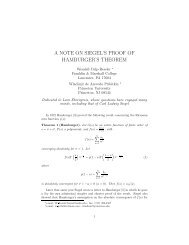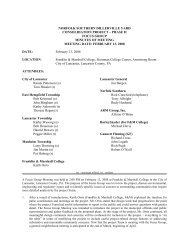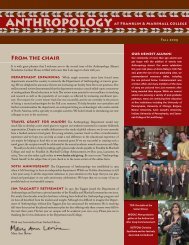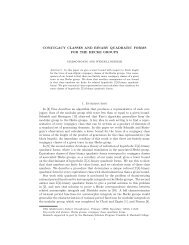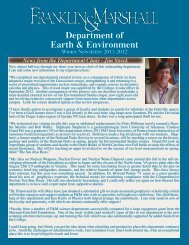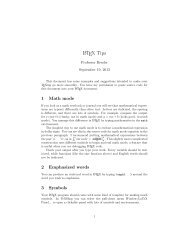Guidelines for Conducting Effective Employment Interviews
Guidelines for Conducting Effective Employment Interviews
Guidelines for Conducting Effective Employment Interviews
Create successful ePaper yourself
Turn your PDF publications into a flip-book with our unique Google optimized e-Paper software.
• give each candidate up-to-date brochures that highlight the College and activities(check with College Communications, the Admission Office, Theater, Dance andFilm, the Music department, Athletics, the Writers House, etc. <strong>for</strong> brochures or listsof current events)• give out-of-town candidates in<strong>for</strong>mation about Lancaster (there are links toresources at http://www.fandm.edu/humanresources/employmentopportunities)As candidates are contacted to schedule interviews, it is recommended they be asked ifthey have a minimum salary requirement - this may screen out those whose salaryexpectations cannot be met.The department manager or search committee chair is to contact candidates who aregoing to be interviewed, to schedule the interviews. Generally, at least 3 candidates whoappear qualified should be interviewed <strong>for</strong> each vacant position. The Associate Director,Human Resources generally interviews each candidate who comes to campus, andshould be contacted when scheduling such interviews.Conduct telephone interviews as appropriate-- With employment candidates who liveout of the area, an initial telephone interview should be conducted, references should bechecked, and educational background should be verified be<strong>for</strong>e inviting the candidate totravel to campus.Create a relaxed atmosphere-- Start the interview by attempting to make the candidatefeel com<strong>for</strong>table. As noted above, all candidates should be treated as "V.I.P.'s" to helppromote a positive image of the College. Introduce yourself and search committeemembers, if applicable. Explain, in broad terms, the requirements of the vacant position(without providing too much detail or the candidate may gear responses to what he/shebelieves you want to hear). Start with fairly standard questions, such as "Please describeyour current job responsibilities". Be sure to avoid inadvertently askinginappropriate/illegal questions while making small talk with a candidate.Ask the same or similar questions of each candidate-- Use your written interviewquestions to guide you. This will help assure each candidate is being judged based on thesame criteria and helps eliminate any perception that the interview process is biased.Avoid asking different questions of female candidates than of male candidates, ordifferent questions of younger vs. older candidates. Try to record each candidate'sresponses verbatim; having a record of each candidate's responses will be helpful ifseveral candidates are interviewed over the course of several weeks.Ask open-ended questions-- To elicit the most in<strong>for</strong>mation, ask questions which requiremore than a 'yes' or 'no' response. For example, ask "What do you like about your presentjob?" rather than "Do you like your present job?".Focus on past job per<strong>for</strong>mance-- The majority of questions should require eachcandidate to describe, in specific terms, how he/she has handled various work-relatedsituations in the past, and the outcome of his/her actions. See the Sample InterviewQuestions document, available from the Human Resources web pages(http://www.fandm.edu/humanresources/college-policies ), <strong>for</strong> examples.



